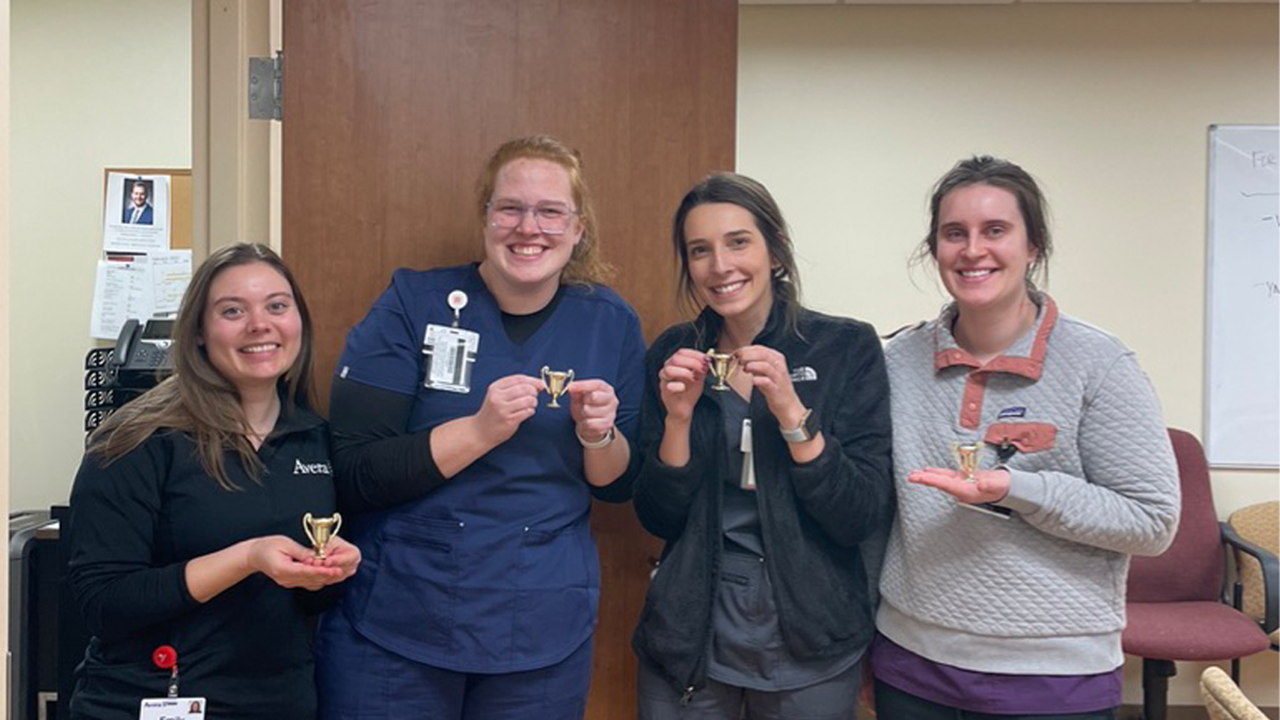Medical Student Keely Walker Seeks to Bridge Gaps in Disability Care

When Walker was young, loss struck her family when her mother was diagnosed with a rare brain cancer. While her mother’s death may have been the initial impetus that inspired her work ethic in academics, she also excelled in athletics. Walker competed as a shot-putter for the track and field team at the University of North Dakota (UND) in Grand Forks.
“I love sports, but I am shockingly uncoordinated,” Walker said. “So if you asked my dad, he might attribute my passion for medicine to all the visits to sports medicine doctors.”
Whether it was one event or a combination, Walker’s love for medicine continued and put her further on the path toward medical school.

“For example, I noticed that volunteers would often talk to the adult patients as though they were children, simply because they had a disability,” Walker said. “And I would see bias tendencies from health care workers when I would accompany people with disabilities to visits. Health care workers would hand forms to me instead of the individual or would look at me when they got frustrated during a visit.”
Rather than let it discourage her, Walker took her experiences as motivation to improve awareness and education among those with disabilities.
Currently, Walker is working on a Scholarship Pathways project with Eric Kurtz, Ph.D., at the USD Center for Disabilities.
Walker explains that those with disabilities often utilize health care at a higher rate than those without disabilities, and yet the care they receive is often of a lower quality. This includes being recommended for screenings less often and having a higher incidence of secondary conditions. Her Scholarship Pathways project is looking to bring these disparities to light and increase education around this topic.
“I hope that by educating future health professionals about disabilities and ways to counter these disparities, we can help to improve the care persons with disabilities receive,” Walker said.
Along with her Scholarship Pathways project, Walker also serves as president for the Coalition of Addiction Students and Professionals Pursuing Advocacy campus organization at USD. This organization works to increase awareness of addiction and recovery for those struggling in surrounding communities, and Walker has been working to promote harm reduction and destigmatization at the legislative level for those struggling with substance abuse disorders.
Like most medical students, juggling research, leadership responsibilities and studying can be a challenge. After passing exams and learning to knit squares during her down time, she started her Pillar 2 rotations at USD's Yankton campus.
Walker will undoubtedly continue to advocate for those with disabilities through health care awareness and help those with who struggle with addiction. While she is unsure on a medical specialty at this point, she says that her next major goal is to graduate from knitting squares to sweaters.
This story was written by Cole Tessendorf, Callie Olson and Autumn Hurd, students in the USD Sanford School of Medicine Student News Group.
Scholarship Support
Walker's path to medicine was made possible in part by support from alumni and friends of the university. Walker has received numerous scholarships as a USD student, including the following.
- Dr. Robert Raszkowski Continuing Medical Education Endowment
- Dr. Arlin Myrmoe and Mrs. Karine Pogosyan-Myrmoe Scholarship Endowment
- Sanford School of Medicine Annual Scholarship
“Having scholarship support is really meaningful and helps relieve some of the burden,” Walker said. “It's nice to know that someone who doesn't even know me was willing to put money forward and trust that I was going to succeed and work hard to make their donation worthwhile."
Make a difference in the lives of students like Keely – so they can make a difference in the lives of others – by visiting the USD Foundation & Alumni Association website.
